Give Me One Minute And I Will Show You Why Your Favorite Self-Help Book Wasted Your Precious Time (And What You Can Do About It)
Discover How An Overlooked, 5-Step System Can Turn Your Self-Help Knowledge Into Real World Results
*We respect your privacy and promise to only send insightful value your way.
Dear Aspiring Change-Maker...
Pause for a moment and consider: How many transformative books have you read? Podcasts listened to? Online courses enrolled in?
Be real with me:
Have they truly shifted your life's trajectory?
Or are you in a never-ending cycle of 'feel-good' self-improvement?
Count the years since you first dived into the realm of self-help.
Five? Six? Even a decade?
Now, evaluate:
Are you living your dream life?
Are you emotionally resilient and mentally empowered?
Are you making groundbreaking strides in your journey?
If you find yourself saying "no" to any of these, today might be your turning point.
The answer isn't another book, per se.
It's a life-navigation system. Let's call it a 'LifeMap,' shall we?
This Purpose Planner contains a 4-step blueprint designed to fast-track your dreams into your daily reality.
Because the thing most self-help manuals lack is actionable strategy.
And that's precisely where TheLoveChange Purpose Planner steps in.
How Will The Purpose Planner
Work For Me?
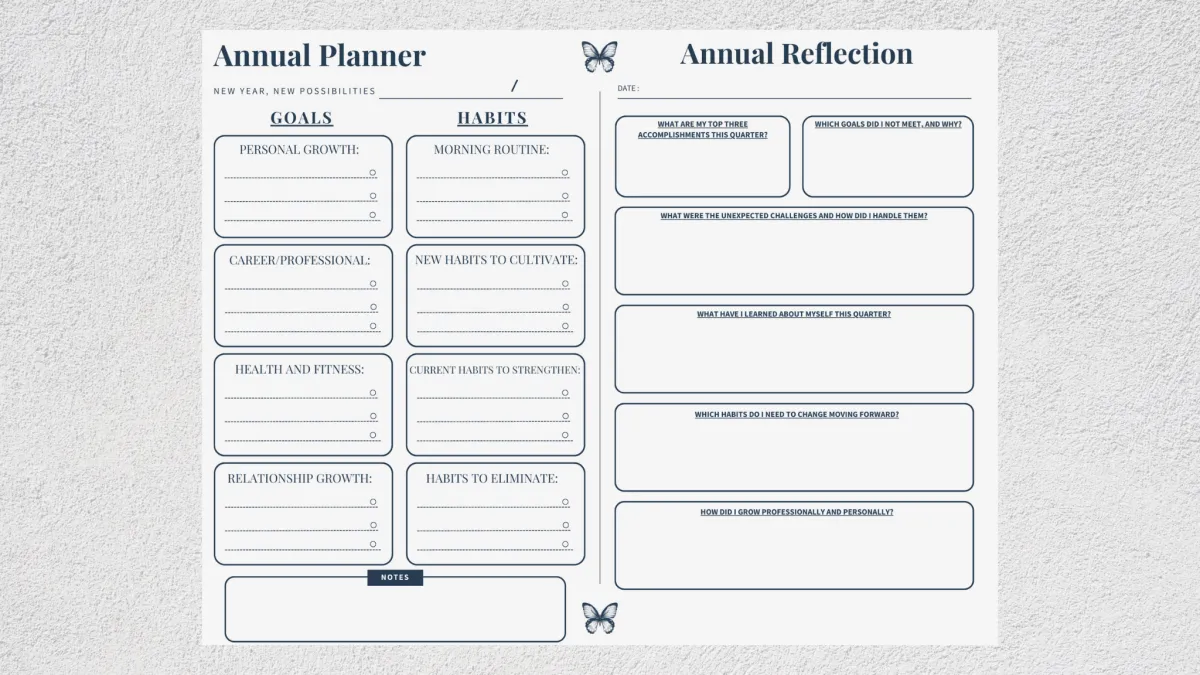
Map Out Your Dream Life
Define your vision, routines, intentions, and goals for the year.
This is necessary to wake up in the morning
excited
and ready to win... not sit their scrolling on your phone.
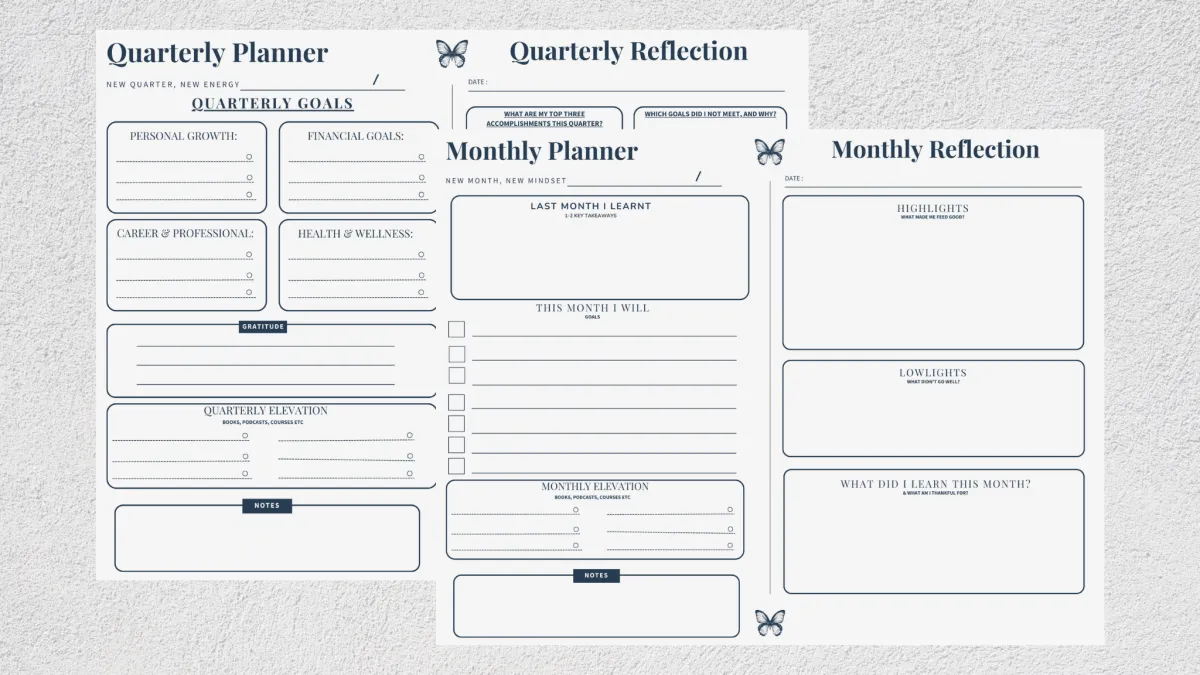
Refine Your Path
Once you define your future do you just leave it at that and hope it comes true? No.
Narrowing down your purpose goals, focus goals, and habits into quarterly and monthly goals will reduce overwhelm to near zero.
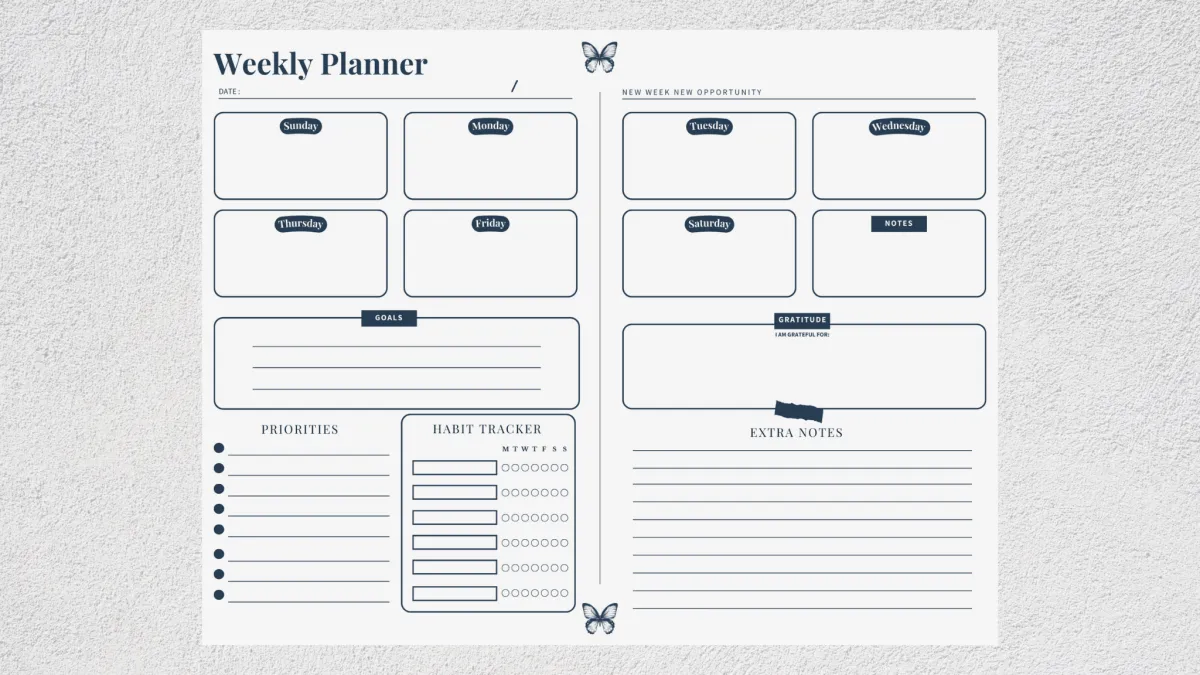
Dive Even Deeper
Week by week, you will dive deep and realize your true priorities.
Weekly reviews will set you up to absolutely crush your week.
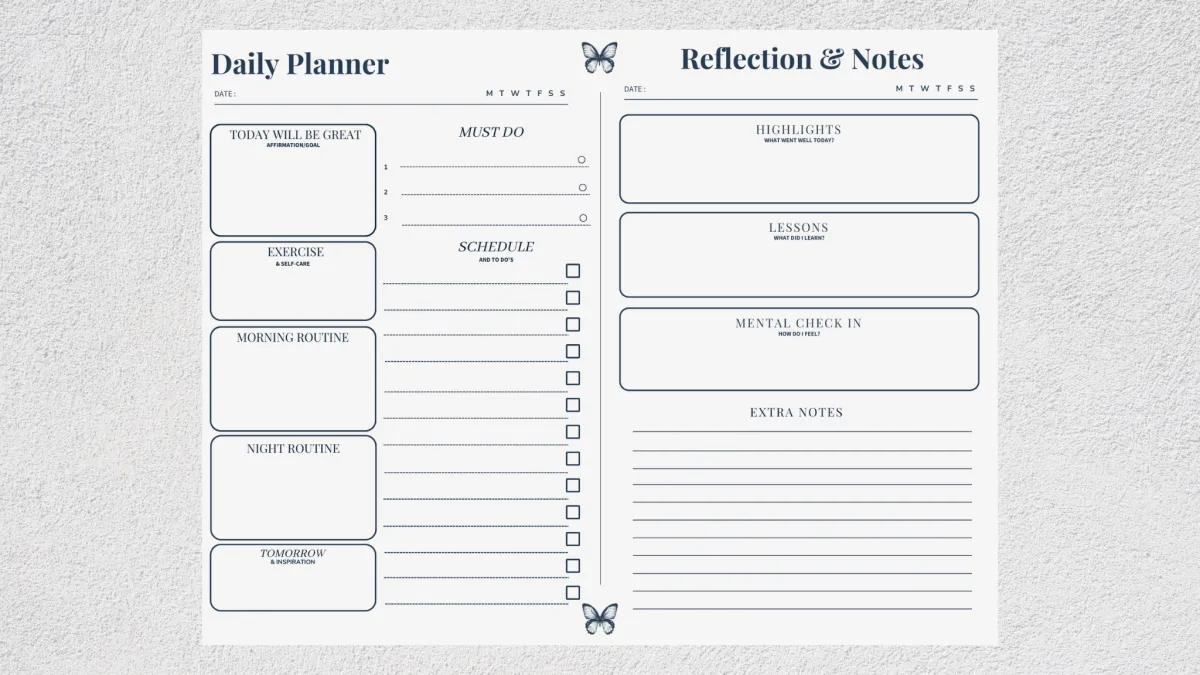
Small Actionable Steps
This is where the magic happens.
Each day, you will prioritize tasks based on your goals. They will be effortless to complete and not take up
hours upon hours of your day.
Legend has it that an hour of focus a day can drastically change your life.
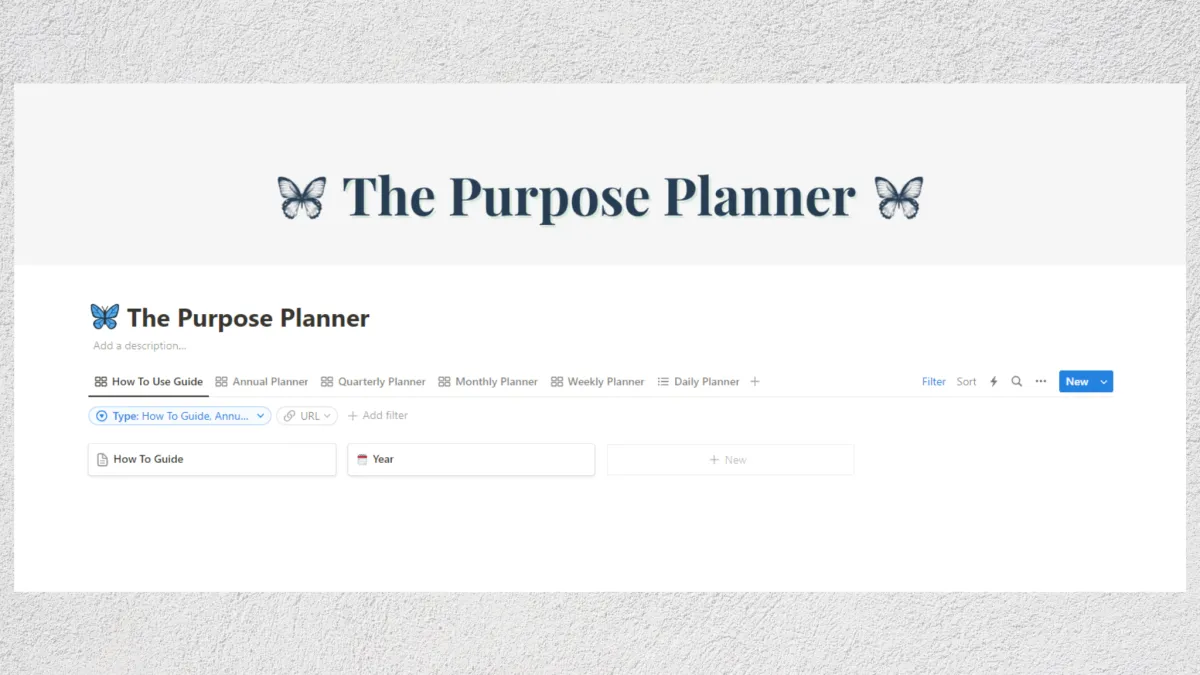
Bonus: The Purpose Planner on Notion
Plan From Your Phone and Desktop
Notion syncs across your devices so you can plan on the go and write down crucial ideas.
Fully Customizable
Don't like a specific part of the PDF version? Simply log into Notion and use its variety of features to make it your own.
You Can Wait For The Perfect Moment, Or You Can Commit
I’ll keep this part short and sweet.
You are the only one that knows your current situation.
Be honest with yourself:
Have you truly made the progress that you’ve wanted to in the last 6 months?
How much longer will you be okay with your current situation in life?
The choice is in your hands.
Start making significant progress towards your dream life, or sit back and wait for the perfect moment (which we both know will never come).
Enter your details below and press "Download Now" to get instant access to the
PDF and Notion version of The Purpose Planner.
*We respect your privacy and promise to only send insightful value your way.

5 Secret Ways to Meditate Properly for Enhanced Mental Clarity

5 Secret Ways to Meditate Properly for Enhanced Mental Clarity
Meditation is often shrouded in mystery and misconceptions, leaving many to believe it's a practice reserved for monks and mystics. However, meditation is a deeply personal experience, accessible to anyone willing to explore its depths. In this blog post, we will explore five secret ways to meditate properly, helping you to unlock the full potential of your meditation practice for improved mental clarity and emotional health.
Despite its growing popularity, many still struggle with meditation, discouraged by their wandering thoughts or discomfort. However, by understanding and applying these five techniques, you can transcend common barriers and experience the profound benefits meditation has to offer.
1. Embrace All Thoughts and Emotions
Stop Blocking and Start Observing
Many beginners mistakenly try to block out thoughts and emotions during meditation, which can actually lead to increased stress and resistance. Instead, meditation should be about observing these thoughts and feelings without judgment. Embracing whatever arises in your mind helps reduce the power of these thoughts and emotions over time, leading to a calmer, more centered state of being.
2. Slow Down and Focus on One Sense
Tune Into Your Sensory Experience
In our fast-paced, multitasking world, slowing down is a powerful act. One effective way to do this is by focusing on just one of your senses during meditation. Whether it’s the feel of your breath entering and leaving your nostrils, the sound of birds chirping outside your window, or the sight of a candle flame, tuning into one sense can help calm your mind and enhance your concentration.
3. Be Aware of Your Breathing
Practice Mindful Breathing to Anchor Your Mind
Breath awareness is a cornerstone of many meditation practices. Simple techniques like the "4-7-8" breathing method, where you inhale for four seconds, hold your breath for seven seconds, and exhale for eight seconds, can significantly enhance your ability to stay present. This practice not only helps stabilize your mind but also connects you deeper with the life force within you.
4. Learn the Art of Surrender
Finding Power in Vulnerability
Meditation involves surrendering control—a challenge for those used to steering the ship at all times. By allowing yourself to be vulnerable and letting go of past and future worries during meditation, you can fully engage with the present moment. This surrender leads to profound insights and emotional release, further deepening your meditation experience.
5. Stop Labeling Thoughts
Thoughts are Neutral by Nature
A common obstacle in meditation is the habit of labeling thoughts as good or bad. This judgment can create resistance and detract from the meditative experience. Instead, view thoughts as neutral events in the mind. By doing so, you can reduce their impact, allowing a more peaceful state of mind to prevail.
Conclusion
Meditating properly doesn’t require hours of silent contemplation each day; rather, it demands understanding and applying these five principles effectively. As you incorporate these techniques into your practice, you'll likely notice a shift towards greater mental clarity and emotional resilience.
Remember, the journey of meditation is as important as the destination. Be patient with yourself, and allow your practice to evolve at its own pace. Embracing these techniques will not only enhance your meditation but can improve your overall quality of life.
Frequently Asked Questions
Q1: How long should I meditate each day? A: Start with a comfortable duration, even if it's just 5 minutes, and gradually increase as you feel able.
Q2: What is the best time of day to meditate? A: While early morning or late evening works for many, the best time is one that fits consistently into your schedule.
Q3: Can meditation help with anxiety? A: Yes, regular meditation can significantly reduce symptoms of anxiety and help manage stress.
- GioLoveChange (Founder of TheLoveChange)

5 Secret Ways to Meditate Properly for Enhanced Mental Clarity

5 Secret Ways to Meditate Properly for Enhanced Mental Clarity
Meditation is often shrouded in mystery and misconceptions, leaving many to believe it's a practice reserved for monks and mystics. However, meditation is a deeply personal experience, accessible to anyone willing to explore its depths. In this blog post, we will explore five secret ways to meditate properly, helping you to unlock the full potential of your meditation practice for improved mental clarity and emotional health.
Despite its growing popularity, many still struggle with meditation, discouraged by their wandering thoughts or discomfort. However, by understanding and applying these five techniques, you can transcend common barriers and experience the profound benefits meditation has to offer.
1. Embrace All Thoughts and Emotions
Stop Blocking and Start Observing
Many beginners mistakenly try to block out thoughts and emotions during meditation, which can actually lead to increased stress and resistance. Instead, meditation should be about observing these thoughts and feelings without judgment. Embracing whatever arises in your mind helps reduce the power of these thoughts and emotions over time, leading to a calmer, more centered state of being.
2. Slow Down and Focus on One Sense
Tune Into Your Sensory Experience
In our fast-paced, multitasking world, slowing down is a powerful act. One effective way to do this is by focusing on just one of your senses during meditation. Whether it’s the feel of your breath entering and leaving your nostrils, the sound of birds chirping outside your window, or the sight of a candle flame, tuning into one sense can help calm your mind and enhance your concentration.
3. Be Aware of Your Breathing
Practice Mindful Breathing to Anchor Your Mind
Breath awareness is a cornerstone of many meditation practices. Simple techniques like the "4-7-8" breathing method, where you inhale for four seconds, hold your breath for seven seconds, and exhale for eight seconds, can significantly enhance your ability to stay present. This practice not only helps stabilize your mind but also connects you deeper with the life force within you.
4. Learn the Art of Surrender
Finding Power in Vulnerability
Meditation involves surrendering control—a challenge for those used to steering the ship at all times. By allowing yourself to be vulnerable and letting go of past and future worries during meditation, you can fully engage with the present moment. This surrender leads to profound insights and emotional release, further deepening your meditation experience.
5. Stop Labeling Thoughts
Thoughts are Neutral by Nature
A common obstacle in meditation is the habit of labeling thoughts as good or bad. This judgment can create resistance and detract from the meditative experience. Instead, view thoughts as neutral events in the mind. By doing so, you can reduce their impact, allowing a more peaceful state of mind to prevail.
Conclusion
Meditating properly doesn’t require hours of silent contemplation each day; rather, it demands understanding and applying these five principles effectively. As you incorporate these techniques into your practice, you'll likely notice a shift towards greater mental clarity and emotional resilience.
Remember, the journey of meditation is as important as the destination. Be patient with yourself, and allow your practice to evolve at its own pace. Embracing these techniques will not only enhance your meditation but can improve your overall quality of life.
Frequently Asked Questions
Q1: How long should I meditate each day? A: Start with a comfortable duration, even if it's just 5 minutes, and gradually increase as you feel able.
Q2: What is the best time of day to meditate? A: While early morning or late evening works for many, the best time is one that fits consistently into your schedule.
Q3: Can meditation help with anxiety? A: Yes, regular meditation can significantly reduce symptoms of anxiety and help manage stress.
- GioLoveChange (Founder of TheLoveChange)
© 2025 TheLoveChange - All Rights Reserved
About - Contact Us - Letters


